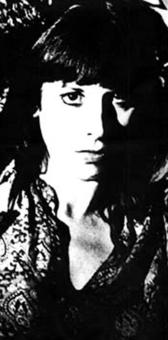ALLMUSIC biography by David R. Adler (amended)Annette Peacock's work as a composer, vocalist, pianist, is austere, cryptic, laconic, minimalistic, brave, and relentlessly individual. Her dry delivery and penchant for stark, stripped-down musical "environments" have made her something of a cult figure and an icon of the avant-garde. A friend of Dr. Timothy Leary and a participant in the early, esoteric psychedelic culture of 1961-1962), a student of Michio Kushi, and longtime adherent of Zen Macrobiotics, Peacock has been releasing albums since 1968. But her career has been defined by fairly long periods of silence; this, her integrity, and her disinterest in self-promotion, explains her lack of popularity amongst the general public.Aside from a brief period of formal study at Juilliard during the 1970s, Peacock is entirely self-taught. Born in Brooklyn, she began composing by the time she was four. Her first professional association was with saxophonist Albert Ayler, with whom she toured Europe in the 1960s. She soon began to write in an idiom she calls the "free-form song," which emphasized the use of space in contrast to the outbursting masculine energy, and cacophonous tendencies of free jazz at the time that Cecil Taylor and Albert Ayler had innovated, and to which she brought her lyrical, yet unsentimental aesthetic. She was introduced to this new wave of improvised music at its onset, and subsequently abandoned her career in theatre arts, when she married the double bass virtuoso Gary Peacock, who then began to work with Sonny Rollins, Miles Davis, Herbie Hancock, Bill Evans, now Keith Jarrett. She also began to write material specifically for the avant-garde pianist Paul Bley and his trio. For decades, Bley has remained one of her most devoted interpreters.
Among her other accomplishments, Peacock is a pioneer of electronic music. Years before the commercial emergence of synthesizers, she received a prototype from inventor Robert Moog. This inspired her to synthesize her own voice, which hadn't been done before. Ultimately, in 1971 and '72, these experiments brought about two innovative albums, Revenge & I'm The One.Despite her decidedly unorthodox profile, Peacock has had several interesting points of contact with mainstream culture. 1973 she collaborated & became documented as a Hologram in a show with Salvador Dali; 1975 Brian Eno began recording Annette with the intention of a release on his Obscure label, this was uncompleted because of conflicting ideas. In 1978 she was hired by Bill Bruford, drummer with King Crimson and Yes, to collaborate as vocalist & lyricist on his first solo album Feels Good to Me, a classic in the progressive rock genre, which until then, had perpetuated as an exclusive male, instrumental, tradion. Her song "My Mama Never Taught Me How to Cook" appears on the soundtrack of Kevin Smith's 1997 film Chasing Amy. And samples from Peacock's song "Survival" have been used by hard-core rappers, such as J-Live & on the "Tell 'Em Y U Madd" release by former Bad Boy label recording artist, militant The Madd Rapper, and Busta Rhymes. Most notably, David Bowie has shown interest in Peacock's work over the years. On his 1999 album Hours, the rock legend made an homage of explicit, obvious references to Peacock's song "I'm the One." Bowie has asked Peacock to work with him on several occasions. 2000 Morcheeba's Back to Mine release features "Pony" from Annette's album I'm The One.During her years in the UK she had her own 'ironic' label and from '81 to '88 released four albums: Sky-skating, Been in the Streets Too Long, I Have No Feelings, & abstract-contact.In 1997 ECM produced a CD consisting of repertoire by Annette from the period between '64 & '72, when she was writing Paul Bley's book, inventing & developing the 'free-ballad' as her contribution to the evolution of jazz. This double disc titled Nothing Ever Was, Anyway: Music of Annette Peacock, salutes Annette's compositions. But her return to the studio came in 2000, three years after she accepted a commission from Manfred Eicher to undertake the writing and arrangements of a project of free-form songs for her voice, string quartet, and herself on piano, and An Acrobat's Heart was realized. This ended a 12-year recording hiatus (her longest yet).Her current release 31:31, became available concurrently with the result of Annette's collaboration with Coldcut, on their current CD Sound Mirrors, also featuring Amiri Baraka & Saul Williams
